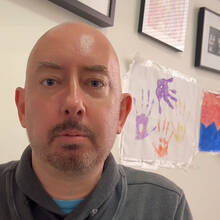In 2013, the poet Dana Gioia published an article in the journal First Things chronicling a decline in the visibility of Catholic artists, particularly writers, in contemporary culture. Entitled “The Catholic Writer Today,” Gioia’s piece also noted a decline in the number and wider cultural relevance of journals that promoted Catholic letters.
The essay went on to have a second life that most writers can only dream of. It spawned a discussion in the Catholic community about the distinctiveness and value of Catholic literature, what precisely “Catholic literature” is and if an author even needs to identify as Catholic to write Catholic novels and poetry.
A year after its publication, Gioia initiated a conference on “The Future of the Catholic Literary Imagination” at the University of Southern California. Three subsequent conferences were held over the next seven years at Fordham University, Loyola Chicago and the University of Dallas. In October, Notre Dame will host the fifth Catholic imagination conference.
The phenomenon of robust cultural discussion around the Catholic literary imagination helped condition the ground for Gioia, poet James Matthew Wilson and novelist Joshua Hren to bring forth in 2021 a fully formed graduate program in creative writing. The program, located at the University of Saint Thomas in Houston, was realized to produce significant contributors to what has been called a Catholic literary renaissance in America.
Joshua Hren said the program reaches “a whole range of aspiring writers who seek tutelage in the rich Catholic tradition, but also who wish to gain a Catholic vision that can sift the precious from the vile in all literature.”
That’s how it was that, on Aug. 10, 2021, I joined a large Zoom meeting featuring more than three dozen students and the now University of St. Thomas Professors Wilson and Hren for a virtual “get to know you” session before the program’s very first classes began later that month. I hoped that the program would help my Catholic faith have a greater influence on other important aspects of my life; and because, yes, I had failed to become a poet and knew that time was running out.
Ever since writing a poem about dinosaurs in the first grade, I wanted to be a poet. As a teen, I longed to be part of the assorted writers, artists and hangers-on in 1920s Paris (mostly inspired by an adolescent misreading of Hemingway’s novel, The Sun Also Rises). Unfortunately, the Denny’s near my high school in Dunedin, Fl., made for a poor substitute for Café de Flore in Paris. The closest I came to dining with Picasso at Denny’s was sharing a meal with a man who tried to recruit me for Amway. My dream of poetry was put aside.
As for my religious journey, it included leaving the Episcopal Church for the Catholic Church later in life. I now find myself in my seventh year of teaching Sunday school and I have a daughter who serves at Mass.
God’s providence led me to Catholicism. It also brought me to the University of Saint Thomas when, in the spring of 2021, I decided I needed to find a (mostly online) MFA program. Before I found St. Thomas, it had not occurred to me that I might have something to say as a specifically “Catholic writer.” However, once that possibility was laid out before me, it seemed both obvious and necessary that my Catholicism might give me something to say.
Starting at the school, I had some initial fears about writing academic papers again, but I found it rather easy to get into the swing of things. I was used to managing my daughter’s school, homework, soccer, ballet, piano, K-pop dance and friend visits. So, with the support of an understanding spouse, I added graduate classes and coursework to my weekly calendar.
Once per week, per class, we would gather on Zoom, open with a prayer and then make our way into the subject at hand: a discussion of submitted poems in workshops, or the readings in seminars. Sometimes professors’ young children would sit next to them, or students would have children on their laps.
Each week my own child would sit on my lap and listen in during the first hour. She would also come in to say good night before bed. One day, a professor noted that my daughter had better attendance than many of the actual students. She took his comment very seriously. During my first two-week in-person residency at St. Thomas, my daughter wanted me to put her on a Facetime call with him once a day from back home, so that she could be marked “present.”
The in-person residencies, taking place during the summer, are encouraged but not required for graduation. They take place in the Texas heat, on the concrete heat sinks of Houston. They are the chance to meet in person the people you’ve only seen mediated by screens. Friendships are strengthened over conversation, practical jokes and alcohol (we are still, after all, college students).
At that first day of the residency, almost all of us attended a special Mass at the university’s chapel. Most of us gathered there for the Sunday morning services, too, as well as slipping away for private prayer, daily Mass and confession.
I was inspired by the program to write poems about my faith and the church, something I had not done before. I also combined my professional life with my writing life during my time in the program. Among other things, I took on a volunteer social media role with the Catholic literary journal Dappled Things.
The program’s poetry track places a great emphasis on form; free verse is recognized as having some value but is generally viewed with some institutional suspicion. I am told that this is very different from most M.F.A. programs. Besides being an aesthetic preference, it also reflects the program’s focus on tradition, including traditional forms. The first course that poets are expected to take goes through iambic pentameter, epigrams, sonnets and so on. All the poetry we wrote for that course was expected to be metrical and usually rhymed.
A few of us dived eagerly into it, playing with rare and intricate forms and developing a sharp ear for meter. Though that will never be my path, it helped me discover a joy in writing poems with a loose iambic pentameter (though I rarely use rhyme, unless a particular poem feels like it demands it).
The seminar courses covered philosophers like Plato, Augustine and Aquinas and poet-critics like Yvor Winters, T.S. Eliot and Sir Philip Sidney. The papers we wrote on literature were not strictly academic. They tended to aim toward—for lack of a better word—a kind of highbrow public consumption.
Like that teenage boy in that Denny’s in suburban Florida, I still want to be part of some movement that produces work that people will want to read 10, 20, 30, 100 years after it was written. The difference between me and the boy I used to be is that now I also want strong, diverse Catholic voices in that movement.
I began my search for an MFA program because I wanted to fulfill the first obligation of any writer: to write well. I also took the step to join a program that asked, Can I put my faith at the center of my writing? I believe that the Catholic Church offers the best path towards true human flourishing. Though not everything I write will be, strictly speaking, religious, I now feel challenged to express my faith through my creative endeavors. For this, I give significant credit to my teachers and mentors at St. Thomas.
And maybe, some day, I can call myself part of a renaissance.








